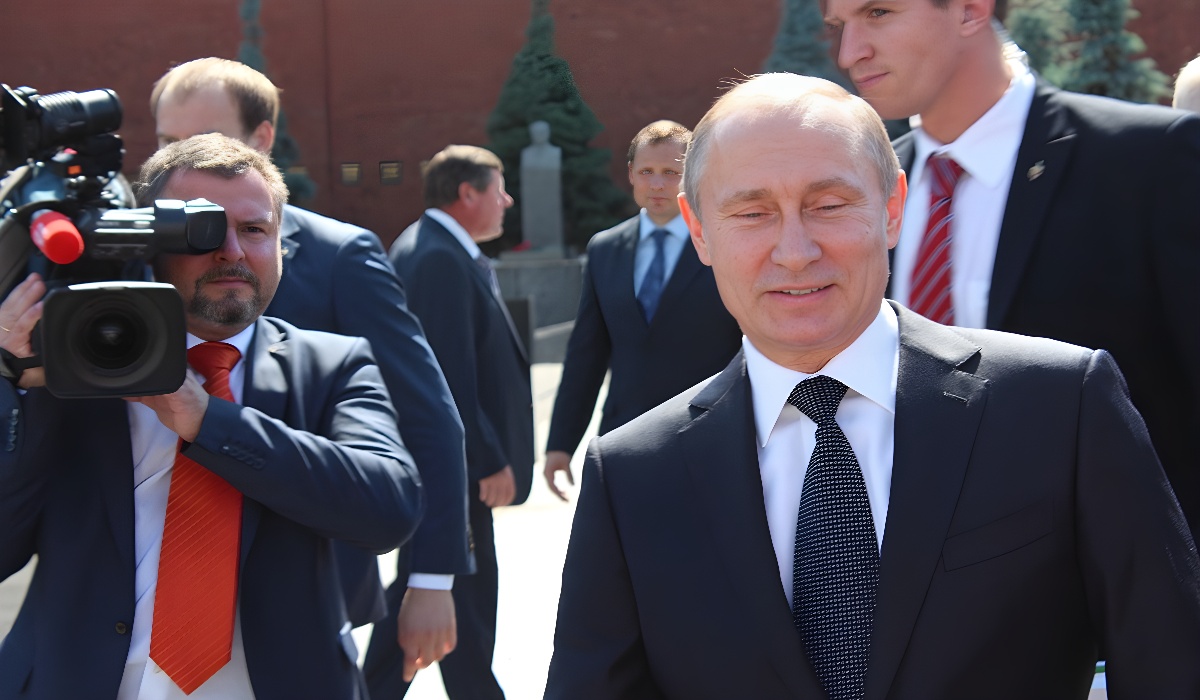Tucker Carlson, Beyond Black and White: Can We Talk To Our Adversaries
- Ingrid Jones
- Trending
- February 9, 2024

Should We Talk to Our Foes? The Power of Open Dialogue in Wartime
Image Credit, svklimkin
The recent interview between American journalist Tucker Carlson and Russian President Vladimir Putin reignited a crucial question: can, and should, we engage in open dialogue with our foes, especially during wartime?
While opinions on Carlson vary, the underlying issue transcends individuals. Historically, communicating with “the other,” often demonized in conflict, has played a key role in finding resolution. Think Barbara Walters with Fidel Castro, Larry King with Muammar Gaddafi, or Charlie Rose with Putin himself. These uncomfortable conversations provided vital insights and fragile bridges of understanding.
Yet, critics argue giving a platform to those opposing our values is appeasement. However, silencing opposing voices fuels misinformation and demonization, widening divides and calcifying positions. Conversely, open dialogue, though challenging, can dismantle stereotypes, exchange narratives, and identify common ground, however narrow.
It’s not about agreeing with adversaries but understanding their perspective. War thrives on misinformation and demonization. Even with those we oppose, honest conversations can counter these narratives, fostering empathy and paving the way for potential solutions.
So, why is there outrage when journalists attempt similar engagement? Their role is to inform, bridge the gap between rhetoric and reality, and present diverse perspectives, however unsettling. In an age of information overload and manufactured consent, responsible journalists act as counterweights, pushing back against government-shaped narratives.
Governmental discourse with adversaries through diplomatic channels is commonplace. Ambassadors and officials engage with nations like Russia and North Korea. If such a high level of communication is acceptable at that level, why not for journalists?
However, dialogue isn’t a magic bullet. It requires careful consideration and preparation. Journalists must have knowledge, critical thinking, and a commitment to truth. They must navigate the complexities of propaganda and manipulation, ensuring their reporting remains objective and balanced.
War is a tragedy, inflicting death, shattering communities, and stealing futures. In the face of such devastation, is having an open line of communication truly “that bad”? Could open communication, even with perceived enemies, pave the path towards de-escalation, eventual understanding, and ultimately, peace?
There’s no easy answer. It demands nuance, stepping outside ideological bubbles, and understanding that silence rarely yields positive outcomes in conflict. Ultimately, the choice is ours: do we fear talking to those with different viewpoints, or embrace it as a potential bridge toward a more peaceful future?
As Noam Chomsky reminds us, the path forward requires questioning narratives, challenging manufactured consent, and seeking understanding beyond our borders. Let the conversation begin, not with bullets, but with words. For within the realm of dialogue, however fraught, lies the possibility of finding common ground, even amid profound differences. And that, ultimately, is what separates humanity from mere belligerence.








